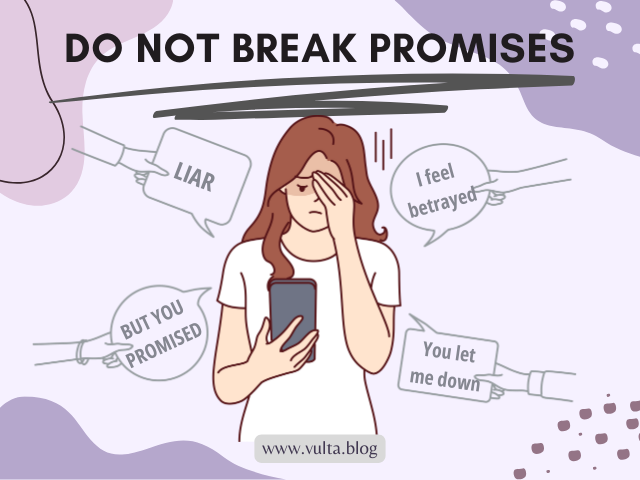Why does your reputation matter? How to build a good reputation?
Professionally, a good reputation makes you appear more Trustworthy and Credible. Socially, it grants you influence and an easier time to build good relations with people

What is a “Good Reputation”
In simple terms, having a good reputation means being well-regarded and respected due to your actions and behavior.
Why does your reputation matter?
Professionally, a good reputation makes you appear more Trustworthy and Credible, it also provides you professional Opportunities.
Socially, it grants you influence and an easier time to build good relations with people, this is because people tend to consider the reputation of a person to get a grasp of their perceived character.
A good reputation is good to have because it is one of the first things people consider when judging your character.
Ways to build a good reputation
Building a good reputation is simple, all you have to do is be as competent as you can possibly be and practice virtue—or at least perceive to be competent and virtuous.
That’s all you have to do, just let the people know that you are competent and of good character.
Further below, you can find guidelines that you can follow so that you strengthen reputation and prevent ruining your.
Never make promises you can’t keep

Breaking promises can lead to disappointment, loss of trust, and permanent damage to relationships.
It's better to be honest (or at the very least not lie) and realistic about what you can and cannot do, rather than making promises that you won't be able to keep.
If circumstances change or you realize you won't be able to fulfill a promise, it's important to communicate that as soon as possible and explain the reasons behind it.
Provide more than expected
Everybody admires the overachiever. The only thing you have to worry about having this reputation are the people who envy you.
Exceeding expectations and proving yourself to be more capable than initially anticipated makes you appear more credible, which grants you respect and recognition.
A good trick to use to get this kind of reputation is to underpromise a task.
Never lose your temper in public
Losing your temper in public not only damages relationships, it also makes you appear unprofessional, which makes you disliked by others and provides professional consequences.
Examples of professional consequences:
- Hostile and ineffective work environment;
- You are less likely assigned in leadership roles; And
- Depending on company policies, you might get fired, demoted, or assigned to another team.
While it's natural to feel anger or frustration at times, finding healthier outlets or addressing issues privately can be more productive and conducive to maintaining positive relationships and a strong reputation.
Be competent
Being known as a competent individual grants you instant respect, it is simply human nature to desire to be strong and be friends with the strong.
Professionally, being known as a competent individual not only grants you credibility, but also increases the chances of you being assigned to leadership roles and a promotion.
Being competent at what you do also makes it hard for you to be discarded professionally.
Everybody likes to be friends with people who are competent, and vice versa.
Be Honest or at the very least do not lie
Breaking promises can lead to disappointment, loss of trust, and permanent damage to relationships.
It's better to be honest (or at the very least not lie) and realistic about what you can and cannot do, rather than making promises that you won't be able to keep.
If circumstances change or you realize you won't be able to fulfill a promise, it's important to communicate that as soon as possible and explain the reasons behind it.
What to do if I already have a bad reputation?
Surround yourself with respectable people
The people you fraternize with will influence how people perceive you.
Aside from the desire to be befriended because you are with influential people, by surrounding yourself with respectable individuals, people are more likely to associate you with their positive qualities and behaviors.
The only downside for this method is that this won’t work if your reputation is too detestable that nobody is willing to be acquainted with you.
Don’t try to run away from your past actions
When you are known for doing something wrong or unsightly, don’t try to deny its existence or deflect the blame, instead admit it and state that you are trying to be better.
Nobody will believe you that you have change or trying to change if you deflect blame or deny its existence.
Find a new environment
Sometimes, the things we have done and/or are known for are too despicable for people to see past our reputation.
If that is the case, then, if possible, it is best to find a new environment where your old reputation isn’t known and start anew.
Things to remember
- Your reputation is delicate, regardless of the time spent building it, one wrong move or one negative or unfavorable piece of information mentioned will either affect your reputation badly or outright destroy its credibility.
Copyright ©2023 by Marshall Vulta




Comments ()